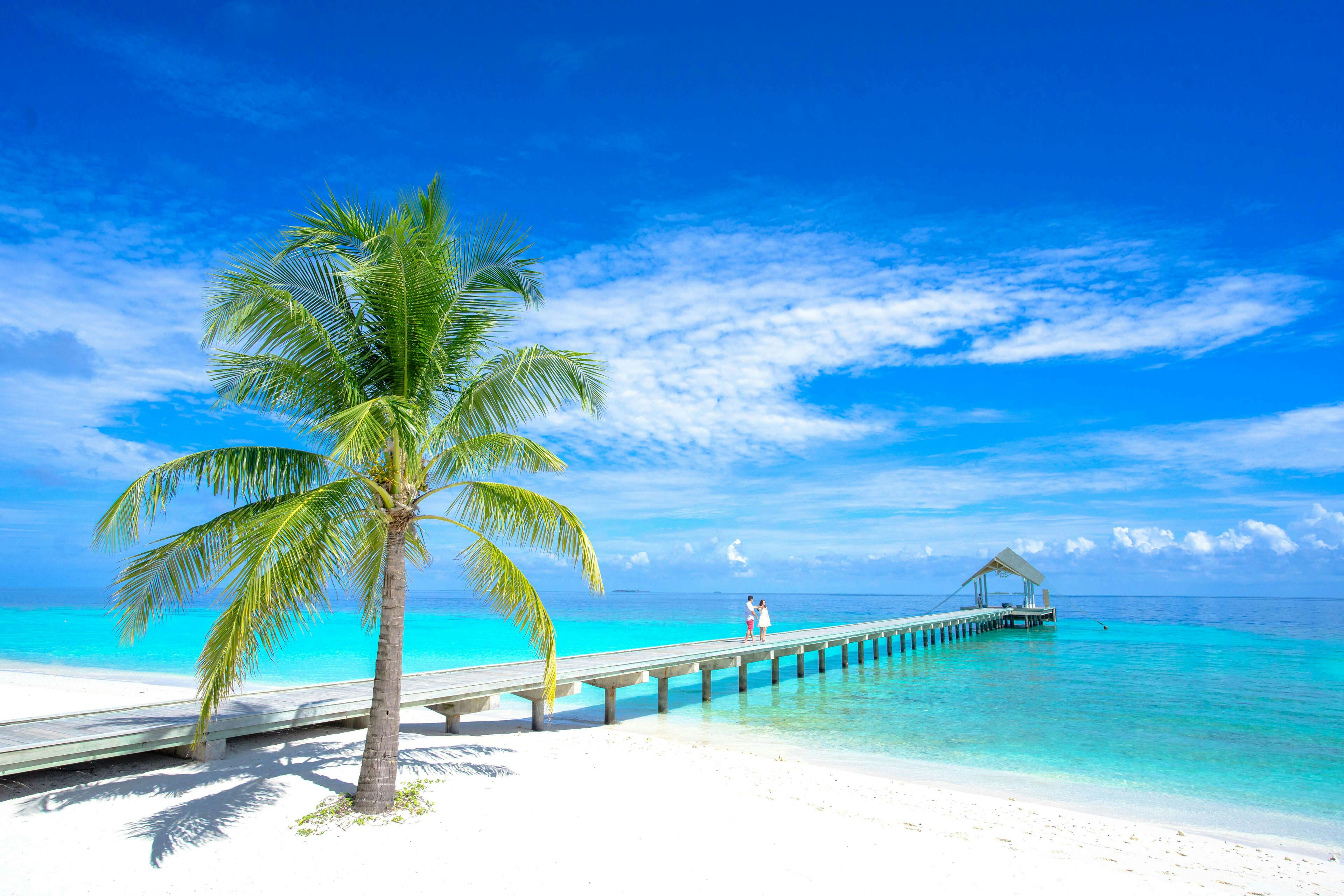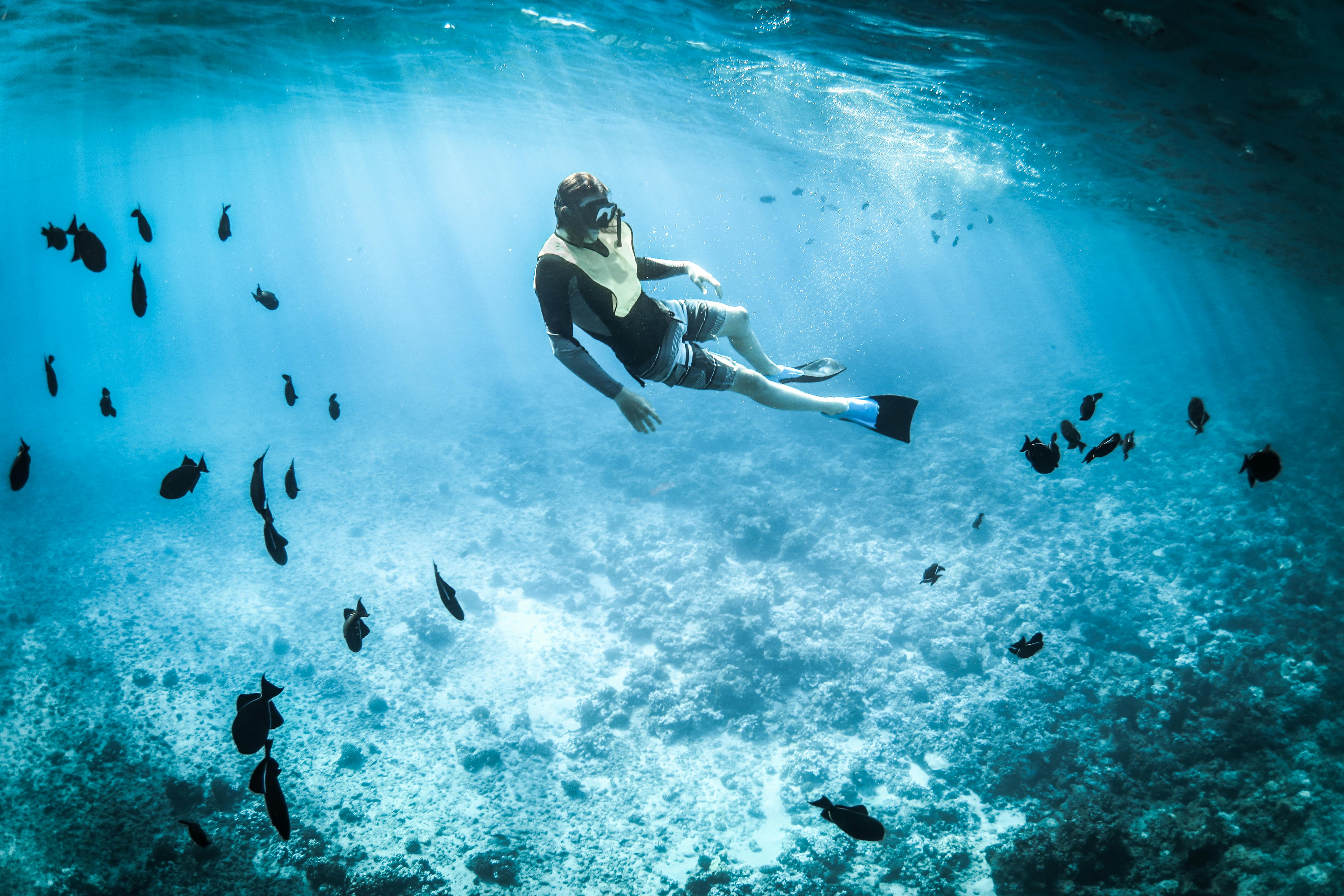Posted by on 01 Nov 2019
, in Islands
Few places on earth celebrate life and nature as passionately as Tahiti does. Aside from the swaying palm trees and vividly blue waters, it is the beautiful dancing women with flower crowns, muscled men with tattoos, and the ever-present notes of a ukulele or drum that conjure the stereotypical idea of Tahiti. They say you’ll know you’ve arrived in French Polynesia when you start seeing flowers and tattoos pretty much everywhere you lay your eyes on. From restaurants and grocery stores down to the printed pareos and canoe breakfasts, these cultural symbols of Tahiti are sure to let you know you’re in the right part of the globe. Even Air Tahiti Nui, Tahiti’s leading airline, got on with the program and would soon be releasing a new fleet of Tahitian Dreamliners with designs featuring tiare flowers, tattoos and beckoning shades of blue that are sure to give anyone serious tropical vibes and a taste of what awaits in the South Pacific paradise.
The new Tahitian Dreamliners will begin flying in November!
Music, dance and art seem to form the very fabric of everyday life in the Islands, all expressions of the rich Polynesian culture that has endured and adapted through history. Here’s a quick look at the different things and experiences that combine to create the beautifully unique Tahitian culture we know today.
TIARE
Hawaii might have claimed the top spot when it comes to flower leis but the practice of wearing them is all over the South Pacific. Tiare, the small seven-petal white blossom that is Tahiti’s national emblem, is prominent in the flower leis that will greet you the moment you step at the arrivals hall at Faa’a International Airport. These flower leis or necklaces are gestures of hospitality and welcome, so when your hotel representative places one on your shoulders, be a dear and accept it. Leis should also never be thrown in the trash as doing so is considered disrespectful. You can instead cut the string and let the flowers scatter to the earth or into the sea.
Flower leis and crowns are also not limited to celebrations or welcoming guests. In fact, local women wear them regularly while going about their daily tasks, and tradition even dictates meanings depending on how they are worn. If tucked behind the left ear, it means the wearer is taken; behind the right ear and it’s a sign he or she is available; and if woven in the hair and placed behind the head? That means “follow me”. The French post-Impressionist artist Paul Gaugin, inspired by the beauty of the Marquesas Islands and their inhabitants, did not fail to capture these flower-related practices in his masterpieces.
TATTOOS
Ink is another thing that is pretty much everywhere in the Islands and it’s not the ink-on-paper kind. Unlike in most societies today where tattoos are a fashion statement, tattoos or tatau in French Polynesia are symbols of one’s identity as well. In ancient times, each tattoo was a sign of courage, a badge of honour or a symbol that identifies one’s genealogy and rank in society. There were designs reserved for priests, chiefs and warlords, and some were actually so sacred you could only get it if you were part of the family since they were handed down from generation to generation. A quick inspection of one’s tattoos back then would tell who the person was, whose family or tribe he was from, and where exactly he figured in the local social hierarchy.
Another thing that adds an air of mystery to Polynesian tattoos is their link to divinity. Tattoos are still widely believed to be inherited from the gods and thus carry some supernatural power or charm. There are designs that are meant to strongly tether a person to mana, the energy said to connect all things on earth. Some motifs keep a person from ill health, bestow fertility, or even protect him from enemies.
Nowadays you can get yours in henna like most tourists do, and there is definitely no shortage of shops that can ink you for a fee in Tahiti. Some also get permanent tattoos as souvenirs, and there are also those who take on the pain and brave the serrated comb made of tortoiseshell, bone or mother-of-pearl for a traditional tattoo. Traditional tattooing can be very painful though and thus considered a rite of passage in the local culture.
MUSIC & DANCE
Life in the Islands is also punctuated by music and dance. Most hotels welcome guests with dance performances by locals and celebrations are never complete without the famous hip-wiggling Tamure dance that inspired that iconic image of a dancing Polynesian woman. Then, there’s Heiva I Tahiti which is definitely French Polynesia’s largest and liveliest festival. Book your trip in July and watch as the Islands erupt with sounds and colours for the yearly Heiva as more than 50 musicians whip up tunes with ukuleles, pu (conch shells), vivo (bamboo nasal flute), and other indigenous instruments. Young men and women in colourful costumes dance to the rhythm of bass drums, showcasing historical and legendary themes. This extraordinary display of age-old traditions usually take no less than six months of preparation, from the heart-pumping choreography to the creation of the elaborate costumes all made out of handcrafted materials.
What is important to remember about the Heiva though is that it is portrayal of Tahitian Renaissance, a celebration of the local culture nearly lost when the Protestant missionaries swept through the Islands in the 19th century and found several local practices irreverent and erotic. Tattoos and dancing were banned, and even the manner of dress was changed. Locals, however, kept these elements of Tahitian culture alive. They danced in secret, recorded traditions, and shared these well-loved legacies in clandestine meetings. Hence, when France annexed Tahiti in 1881, it was only a matter of time until these practices that defined Tahiti emerged back into the light and were celebrated again.
For more information on the Islands of Tahiti or expert help on planning a memorable Tahitian getaway, enquire or call us at 1300 858 305. Our team of Tahiti travel specialists is standing by to offer the best possible advice for a once-in-a-lifetime tropical vacation.


